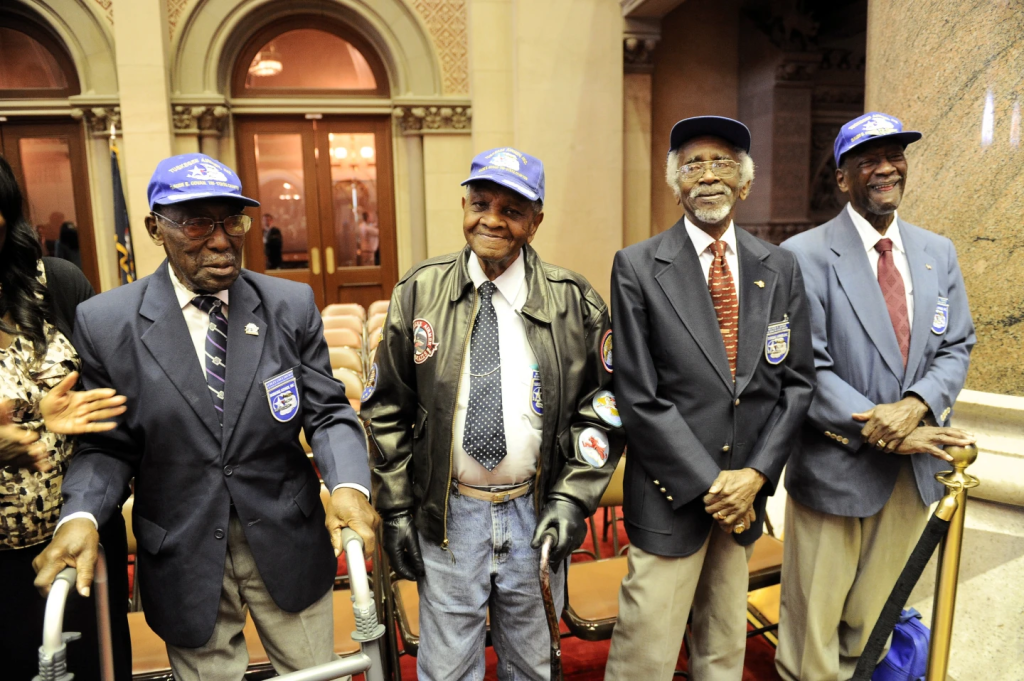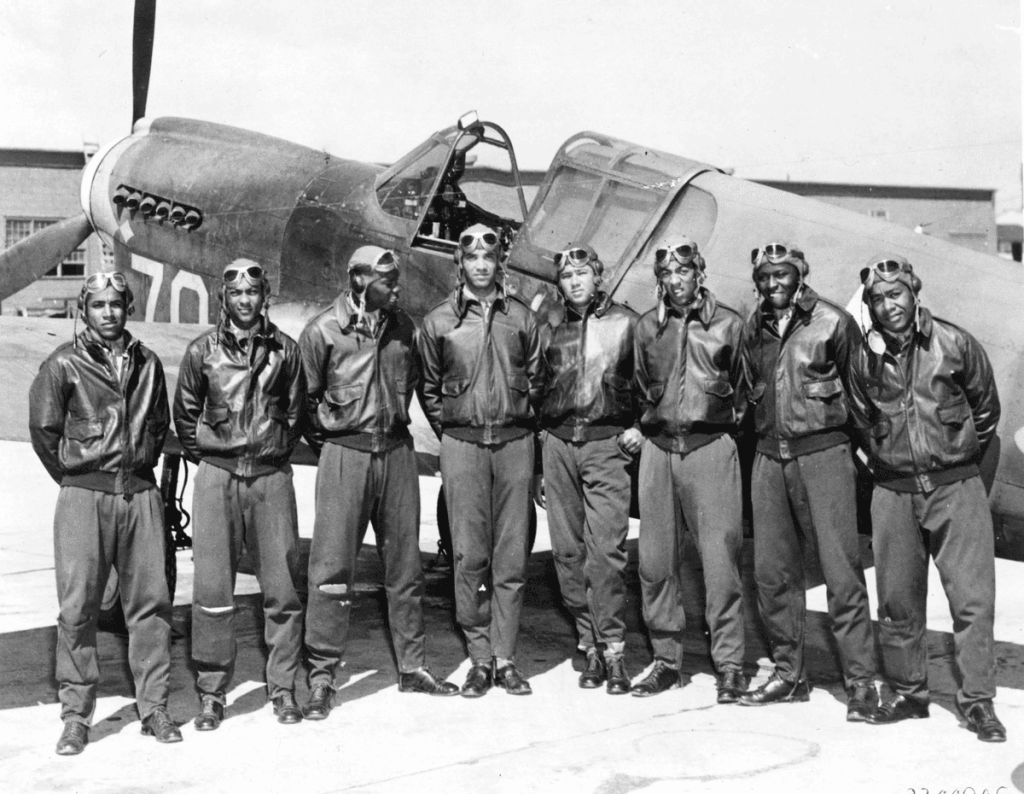The U.S. Air Force has removed training videos featuring the Tuskegee Airmen and Women Airforce Service Pilots (WASPs) as part of a broader compliance effort with President Donald Trump’s executive orders restricting diversity, equity, and inclusion (DEI) programs. This decision has sparked widespread debate over preserving military history while adhering to changing political directives.
What is Tuskegee Airmen?
The Tuskegee Airmen, the first African American military aviators in U.S. history, made their mark during World War II in a segregated military. Known as the “Red Tails,” they distinguished themselves as bomber escorts, achieving one of the lowest loss rates among Allied forces. Their courage and skill broke barriers and shattered stereotypes, earning them the Congressional Gold Medal in 2007.

In 2020, President Donald Trump further honored their legacy by promoting Charles McGee, a Tuskegee Airman, to brigadier general at the age of 100. Although McGee’s passing in 2022 marked the end of an era, the legacy of the Tuskegee Airmen continues to inspire generations of service members.
Tuskegee Airmen History

The Women Airforce Service Pilots (WASPs) also broke barriers during World War II. These civilian female pilots ferried military aircraft, tested planes, and trained male pilots, freeing men to serve in combat roles. Despite facing significant resistance and only receiving veteran status decades later, their contributions were formally recognized with the Congressional Gold Medal in 2009.

Why Were the Videos Removed?
The removal of these training videos aligns with executive orders issued by Trump in 2020, aimed at curbing federal DEI initiatives deemed “divisive” or “politically charged.” The videos, highlighting the challenges and triumphs of marginalized groups in military history, were categorized as part of DEI programming.
Critics argue that these materials go beyond DEI and serve as vital educational tools that underscore resilience, unity, and the evolution of military culture. By removing them, some fear the Air Force risks diminishing awareness of these trailblazing aviators’ contributions.
Preserving the Tuskegee Airmen’s Legacy
The Tuskegee Airmen’s story is a testament to perseverance, excellence, and the triumph of courage over adversity. Their legacy transcends politics and serves as a reminder of the vital role diversity has played in strengthening the U.S. Armed Forces.
By sidelining these historical narratives, critics argue the Air Force risks losing an opportunity to inspire service members and foster a deeper understanding of the military’s evolving history. Reframing these stories as part of broader military history, rather than DEI initiatives, could allow for their continued inclusion in training programs.
Recruitment and Morale
The decision comes amid ongoing debates about the role of DEI programs in the military. Advocates for such initiatives contend that they foster a more inclusive and representative force, boosting recruitment and retention among underrepresented communities. They warn that scaling back these efforts may hinder progress in building a diverse and cohesive military.
Conversely, supporters of the policy shift argue that the military’s focus should remain on mission readiness and merit, free from initiatives they view as politically influenced. Removing DEI content, they claim, ensures that training emphasizes shared values rather than perceived divisions.
Their stories are not just about the past—they are a blueprint for overcoming challenges and uniting around shared values of excellence and service. In an ever-changing world, the lessons of these pioneering aviators remain as relevant as ever.


